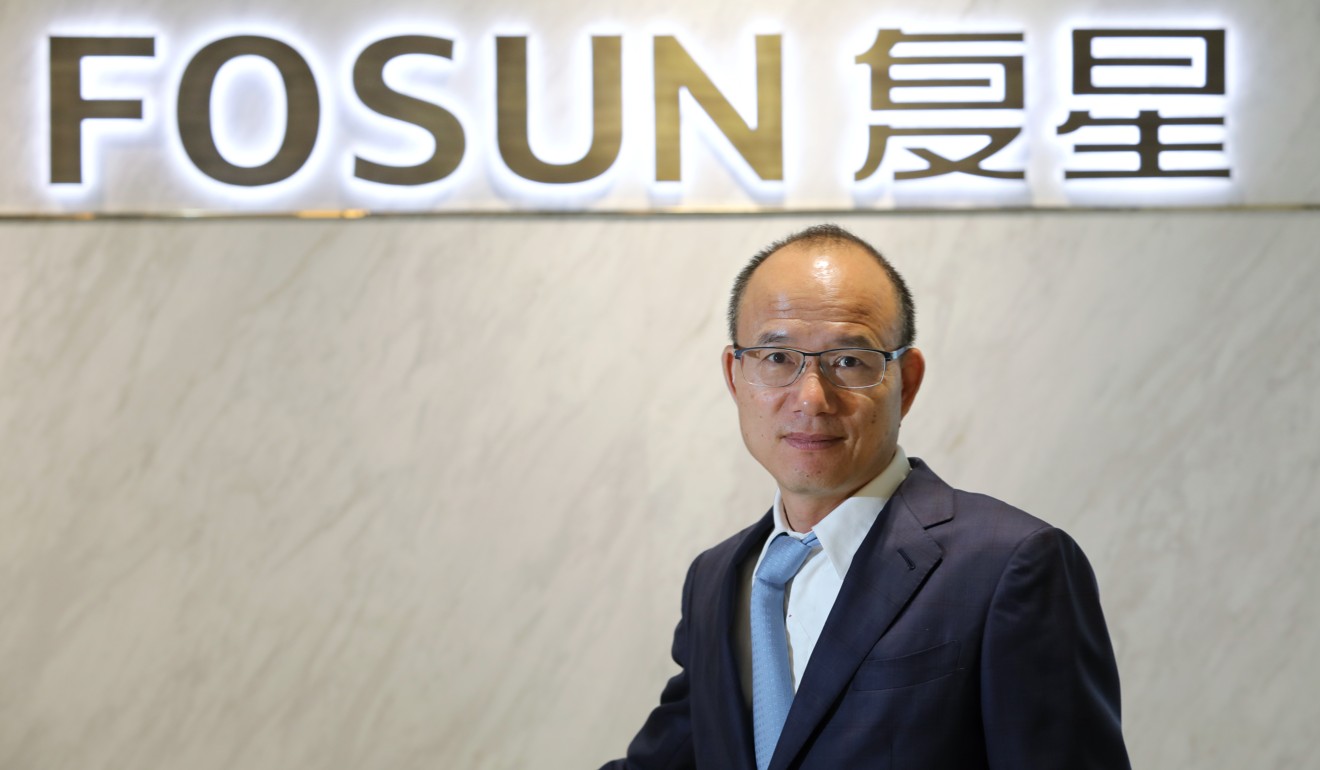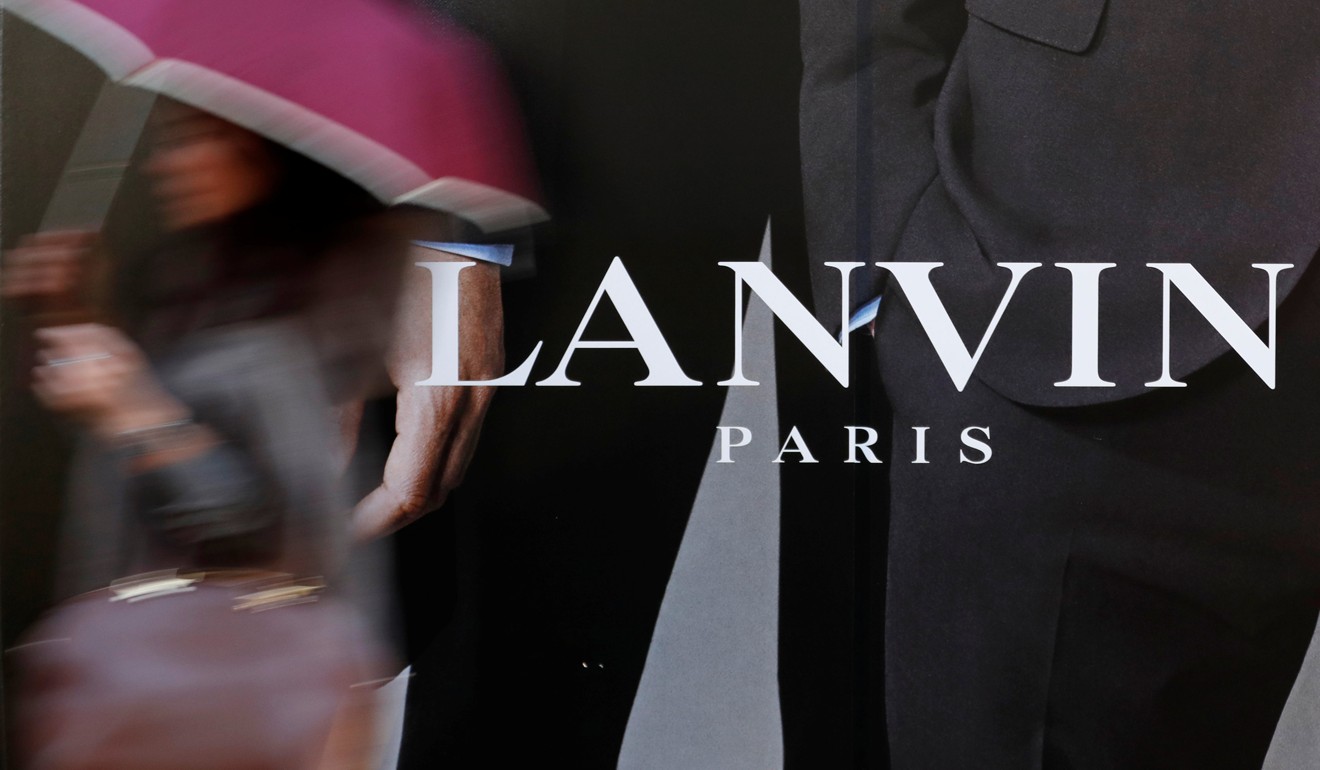
Exclusive | Fosun’s founder adds his voice to calm jittery nerves among China’s private-sector entrepreneurs
- The boss of one of China’s largest private-sector conglomerate says reforms take some time to be implemented
- Says talk of state-owned companies taking over private companies are being exaggerated
Guo Guangchang, China’s 26th-wealthiest man and founder of one of the country’s largest private conglomerates, said short-term turbulence in the Chinese capital markets will stabilise under the steady hands of the leadership and their commitment to the long-term liberalisation of the world’s second-largest economy.
“Many policies have been announced. However, implementation takes time,” said Guo, founder and chairman of Fosun Group, in an exclusive interview this week with the South China Morning Post in Shanghai.
China’s Fosun shrugs off trade war to continue the hunt for overseas deals, says chairman Guo Guangchang
“Over the years, all policy leaders have been trying hard to offer private enterprises a level playing field. I believe that there is no change in the policy.”
The comment by Guo, whose seven listed companies together account for US$43 billion in combined market capitalisation in Shanghai and Hong Kong, is a clarion call for calm and confidence in China’s ongoing reforms. Fosun also has stakes in several other publicly listed companies worldwide.
His comments came amid growing concerns about Beijing’s commitment to the country’s private sector and slow progress on reforms.

Private companies, which account for 60 per cent of China’s gross domestic product and 80 per cent of jobs in urban areas, are having an increasingly tough time even as the government increases support for state-owned enterprises. There have also been reports of SOEs gobbling up struggling private firms which have been hit hard by the US-China trade war and the squeeze on financing.
Xi Jinping’s favourite baozi shop gets a financial lifeline from Fosun, eyes a stock market listing
In an apparent effort to boost the morale of the mainland’s entrepreneurs, Chinese President Xi Jinping convened a symposium this month to hear views from capitalists such as Robin Li of Baidu and Pony Ma of Tencent Holdings.
He pledged to protect the interests of privately owned companies, soothing concerns among entrepreneurs.
Xi told them that the central government would roll out more incentives such as tax reductions and financing support to bolster further growth of private firms, because they were an important part of the national economy.
Since then there have been a series of positive developments. Last week, the Supreme People’s Court, the highest court in the mainland, said infringements of the legitimate rights of private enterprises and entrepreneurs will be punished, a move to shore up businesspeople’s confidence in the country’s judicial system.
Fosun’s Club Med unit says it has filed for a Hong Kong IPO, could raise up to US$1 billion
China Banking and Insurance Regulatory Commission chief Guo Shuqing said last Friday that at least a third of new loans should go to private companies, which will rise to 50 per cent in three years.
Local governments too have been doing their bit. Authorities in Shanghai have published a draft document of 27 new measures geared to develop the private sector with 30 billion yuan (US$4.3 billion) in funding.

“The talk of [private enterprises being taken over by SOEs] happened before these supportive policies [were announced],” said Guo, adding that the number of companies being taken over is insignificant when compared to the huge sector in China. “The picture has been exaggerated,” he said.
Capitalising on China’s economic liberalisation, Guo founded Fosun with three other graduates from Fudan University 26 years ago. He turned it from an entrepreneurial start-up into one of China’s leading private-sector conglomerate with total assets of about US$85 billion as of December 2017, and net profit of US$2.1 billion with interests in property, health care, finance, tourism and culture related businesses.
Chinese conglomerate Fosun to invest 100 billion yuan in AI, biotech and fintech over next decade
Also giving a vote of confidence to China’s liberalisation and private sector reform was Bain Capital, the US-based private investment firm with about US$105 billion in assets under management.
“You can’t put the genie back in the bottle,” said John Connaughton, a co-managing partner at Bain Capital, referring to how difficult it would be to roll back the development of the private sector.
He believes economic reform will continue in the long run on the back of globalisation. “Rational economic behaviour brings a pretty powerful force in perpetuating economic reform,” Connaughton said.

However, Guo of Fosun admitted that private sector sometimes could face discrimination.
“Private enterprises could sometimes face unfair treatment or face difficulties. This is because of various reasons such as when China is facing a softening economy, or [when] private sector reforms are not in place.
Fosun adds another luxury brand to crown as it takes control of French fashion house Lanvin
“But I am sure that is not policy leaders’ intention. It won’t be a long term move, or it will affect the future of private enterprises,” said Guo.
At the Chinese Economists 50 Forum in September, which brought together economists, entrepreneurs and government officials in Beijing, Li Yang, the former deputy head of the Chinese Academy of Social Sciences, told the meeting that he feared for the future of private firms and that many may not be able to survive if they continued to face discrimination.
Li said that the clampdown on credit as part of the broader onslaught against rising local government and corporate debt had been particularly severe for small companies struggling to obtain funding.
Additional reporting by Daniel Ren in Shanghai

